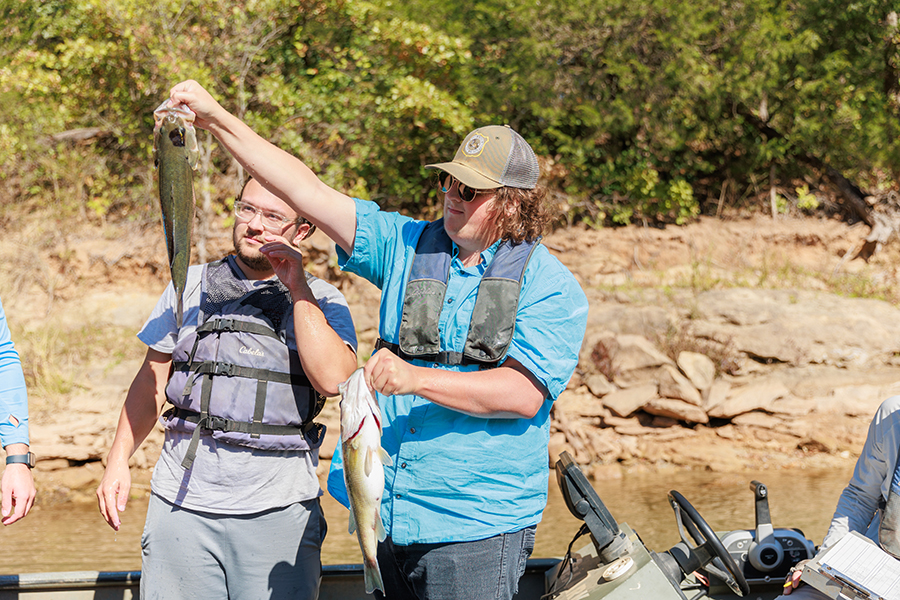Fisheries and Aquatic Ecology option

What is fisheries and aquatic ecology?
The fisheries and aquatic ecology option prepares students to sustain healthy fish populations and aquatic resources
Why fisheries and aquatic ecology?
You will study fish biology, water quality, and ecosystem dynamics and gain hands-on
experience in field sampling, data analysis and fisheries planning.